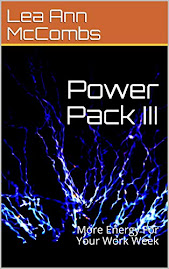After much foot-dragging and skepticism, I finally read The Shack. The following is my review:
I found the storyline of The Shack intriguing, if a bit slow to develop. Mack is a likable guy and his grief over losing his beloved daughter is well-developed. The theme of unbearable pain resonates with most of us, as well as the emotional struggle to hang on to faith in spite of it. In addition, the interactions between Papa, Jesus, and Sarayu are well-written and leave readers wishing we could meet them. But that’s where the warning lights begin to flash.
In his efforts to portray the triune God as approachable and loving, Paul Young dispenses with biblical portrayals of Him and creates a god he likes better. This is almost understandable when we know the tragic childhood abuse Young suffered. But it is not excusable. If we had no factual accounts where a human met God, then Young’s guesswork would be more plausible. However, the Bible has given us some, and they look nothing like Young’s portrayal. This is where The Shack departs from the genre of allegory and nudges the border of heresy.
Biblical characters who met God followed a predictable pattern. In the Bible, everyone who met the God of the Old Testament, or recognized the identity of Jesus in the New, fell down and worshiped (Gen. 18:1-2; Matt. 14:33; Isaiah 6:5). They couldn’t help it. The awesome majesty of Almighty God compelled them to instantly humble themselves. Mack’s lack of awe and reverence, and “Papa’s” casual acceptance of it, are a jarring departure from what we know to be true. Here, Young takes a sharp left turn from biblical truth and creates a god who does not exist. This would be fine in the genre of fantasy or sci-fi, but Young purports that his fictional god can teach us more about the real one than the Bible can. And frighteningly, many Christians have agreed.
Allegorical works never state upfront that they are parallel representations of spiritual realities. Pilgrim’s Progress and The Chronicles of Narnia, for example, are fictional worlds that parallel truth, but they never ask us to substitute real truth for their own. They merely cast shadows that help us think of spiritual truths in more concrete terms. That’s where this book parts company from other fictional portrayals of God-like characters. The Shack is not allegorical. It asks that we suspend biblical reality, enter into its world, and accept an alternate god who is unlike the portrait God has painted of Himself. That is not allegory. That is not a helpful way to understand God. That is heresy.
Many intentional departures from truth are sprinkled throughout the book and would be tolerable if they weren’t so foundational. Giving “Jesus” a big nose is merely taking artistic license. But having “Papa” state that she “never punishes sin because sin is its own consequence” is a direct contradiction of scripture (Romans 1:18; Colossians 3:5-6; Ephesians 5:6). Some other contrasts are:
- Young’s god has flesh; scripture’s God can never be seen (1 Tim. 6:16).
- Young’s god saves everyone; scripture’s God saves those who repent and believe (John 3:16-18).
- Young’s god identifies as female: scripture’s God calls Himself Father, using decidedly masculine nouns and pronouns from Genesis to Revelation (2 Cor. 6:18).
- Young’s god dismisses hell; scripture’s God warns us about it (Matthew 23:33).
- Young’s god experienced the crucifixion as the Father; scripture’s God sent Jesus Christ in the flesh to suffer that alone (Matt. 27:46).
- Young’s god would never pour out wrath upon sin or unbelievers; scripture’s God pours out His wrath against all wickedness (Romans 2:5; Col. 3:6).
These departures illustrate one of the most troubling undertones of the whole book: every reference to the Bible is negative. Young, through the supposed counsel of Papa, implies that in order to truly know God, one must set aside the “centuries-old parchment” and find Him in music, art, poetry, etc. Don’t we recognize how dangerous this is? The real God points continually to His word as our source of life and wisdom (John 17:17). Mack’s “Papa” never mentions it except to dismiss it as irrelevant to the superior experience of “relationship.” This feeds into our natural human desire to recreate God as we’d like Him to be--a launching point for most spiritual error.
“Relationship” implies an amicable agreement between two people. Human relationships are always negotiated, with a bit of compromise on each part. When the word “relationship” becomes the sole foundation of our standing with Almighty God, we subconsciously assume those same rules apply. Without His word as the foundation for a “relationship with God,” the term can mean anything we want it to mean. However, the Bible never gives us that option.
One of the most offensive errors in the book is the paragraph where Mack asks Jesus what it takes to be a part of His bride, the church. The fictional “Jesus” deflects the question and insists that He doesn’t want anyone to be a Christian. In one sentence, the pretend Jesus dismisses the word “Christian” with disdain and goes on to explain that His people are in every religion and every walk of life. This statement is outright heresy and with one sweep dismantles the entire gospel. This fake Jesus fails to explain why the apostles and martyrs did not realize “we’re all God’s children” before giving up their lives for proclaiming the opposite.
I am honestly baffled at why this spiritual minefield has been enthusiastically greeted as a theological masterpiece by those who ought to know better. The unapologetic theme of universalism flows unabashedly through every conversation Mack has with this unholy trinity. They refer continuously to all human beings as their “children,” ignoring passages such as John 1:12 and 1 John 3:7-10 which narrow the field considerably. Hell is soundly dismissed as a possibility, since Papa could no more allow His beloved children to go there than Mack could sentence his own. This unsettling conclusion is in direct contrast to the words of the real Jesus who said, “But I will warn you whom to fear: fear the One who, after He has killed, has authority to cast into hell; yes, I tell you, fear Him!” (Luke 12:5)
For those still in the corner with Wm. Paul Young, ready to argue any of the above concerns, I invite you to consider his latest work Lies We Believe About God. In it, Young clarifies his heretical assertions that were more subtly suggested in The Shack. Young's answer to whether or not he believes everyone will eventually be reconciled to God: “Are you suggesting that everyone is saved? That you believe in universal salvation? That is exactly what I am saying!” (p. 118). “Every human being you meet . . . is a child of God” (p. 206).
The popularity of The Shack among evangelical Christians is not only shocking but sad. It is, unfortunately, a thermometer that indicates the temperature of the modern church. We claim we want to know God, but we are equally desirous of a god who says and does what we like, leaving us frighteningly susceptible to ideas and practices that give us both. Sadly, discernment is a quality modern evangelicalism has discounted in its frantic efforts to produce a form of spirituality the world can accept. The embrace of works like The Shack demonstrates just how little weight we really give to scriptural authority and how lacking is our understanding of the Lord we claim to serve.
.













